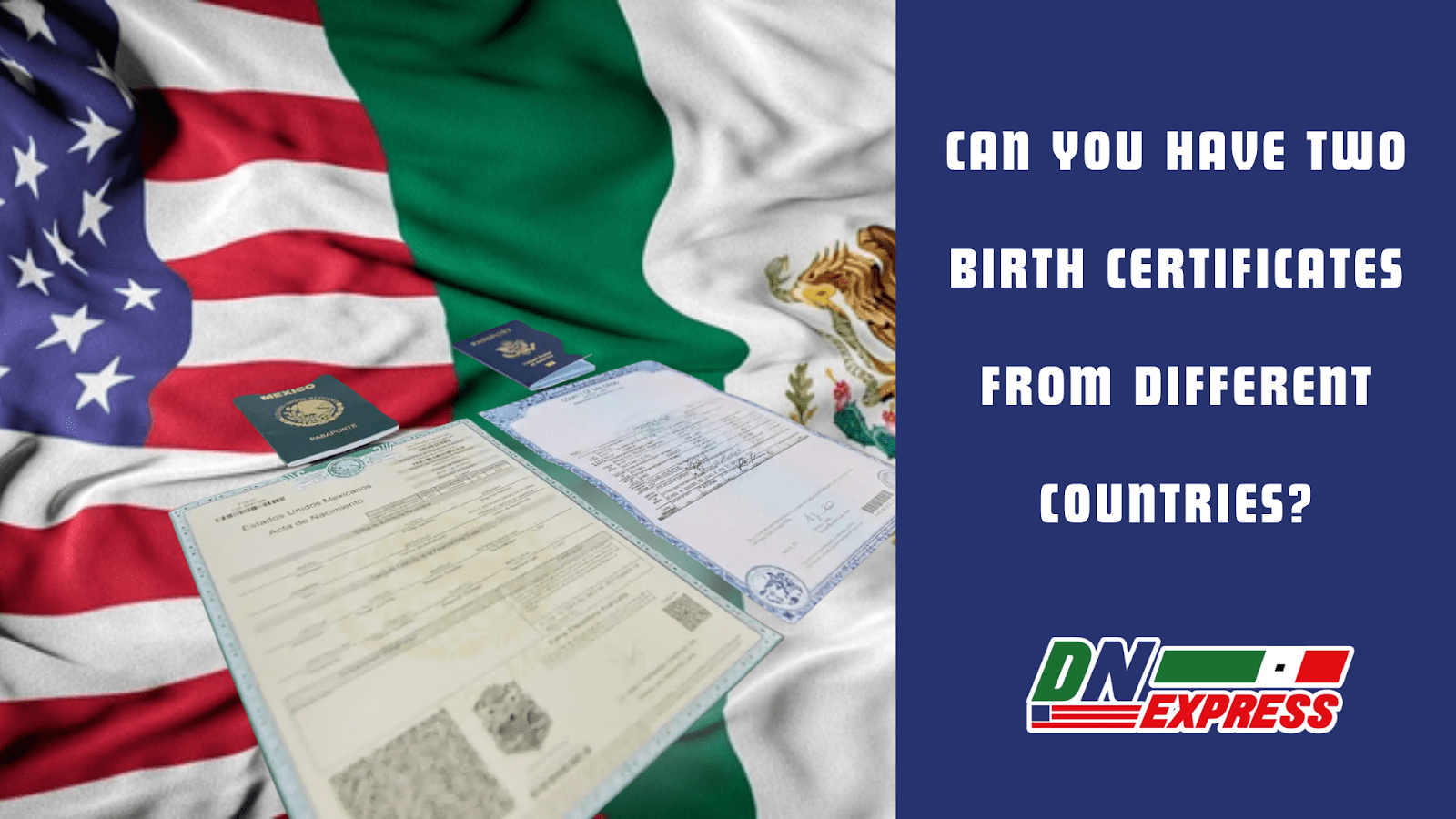
Yes, you can have two birth certificates from different countries if your birth was registered abroad by your parents or through dual nationality processes. But conflicting records may cause legal, travel, or identity issues.
This situation is especially frequent for U.S.-born children of Mexican parents, adults correcting documents for dual citizenship, or families reconnecting with their heritage.
Each case brings unique challenges, like mismatched birthplaces on passports, fears of losing benefits, or difficulties applying for Mexican IDs.
We’ve helped thousands of clients resolve these issues without ever setting foot in a consulate.
Our licensed Mexican attorneys can annul duplicate registrations, fix errors, and secure your Mexican nationality, all from the U.S.
Want to understand how this works and why fixing conflicting birth records matters? Keep reading for the full breakdown.
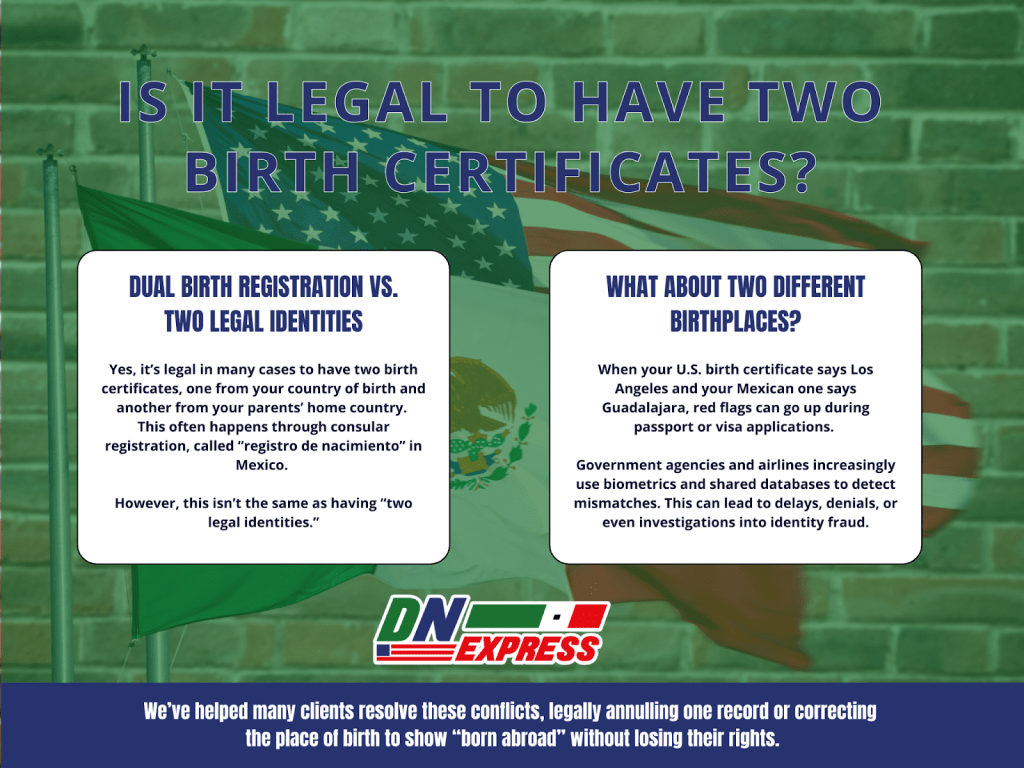
Why Would Someone Have Two Birth Certificates?
Having two birth certificates from different countries may sound unusual, but it's surprisingly typical for families with ties to Mexico and the U.S.
It usually happens when parents, often with the best intentions, register a child’s birth in both countries.
Here’s why:
- U.S.-Born Children of Mexican Parents
Many Mexican parents register their U.S.-born children in Mexico to preserve nationality rights.
This “registro de nacimiento” creates a Mexican birth certificate showing the child as born in Mexico, even if they were born in California or Texas.
It was once a frequent way to secure inheritance rights or avoid future paperwork for Mexican IDs.Learn more about Mexican citizenship eligibility requirements.
- Adults Correcting Documents for Dual Citizenship
Errors in names, dates, or locations between U.S. and Mexican records can block dual citizenship applications.
Adults often discover they need to correct or annul one birth registration to proceed legally.
- Parents Applying for Their U.S.-Born Children
Some parents proactively register their U.S.-born kids in Mexico so they can later own property, access healthcare, or maintain cultural ties.
This second registration creates a parallel birth record in Mexico.
- Mexican-Americans Reconnecting With Heritage
Many Mexican-Americans only learn about their dual registration decades later, usually when applying for a Mexican passport or CURP. Reconnecting with their heritage often means sorting out conflicting birth records first.
- Spouses or Family Members of Mexican Citizens
In some cases, marriage or family residency applications trigger a secondary registration, especially if spouses are unaware their birth was already registered abroad by their parents.
Explore which countries allow dual citizenship with the U.S.
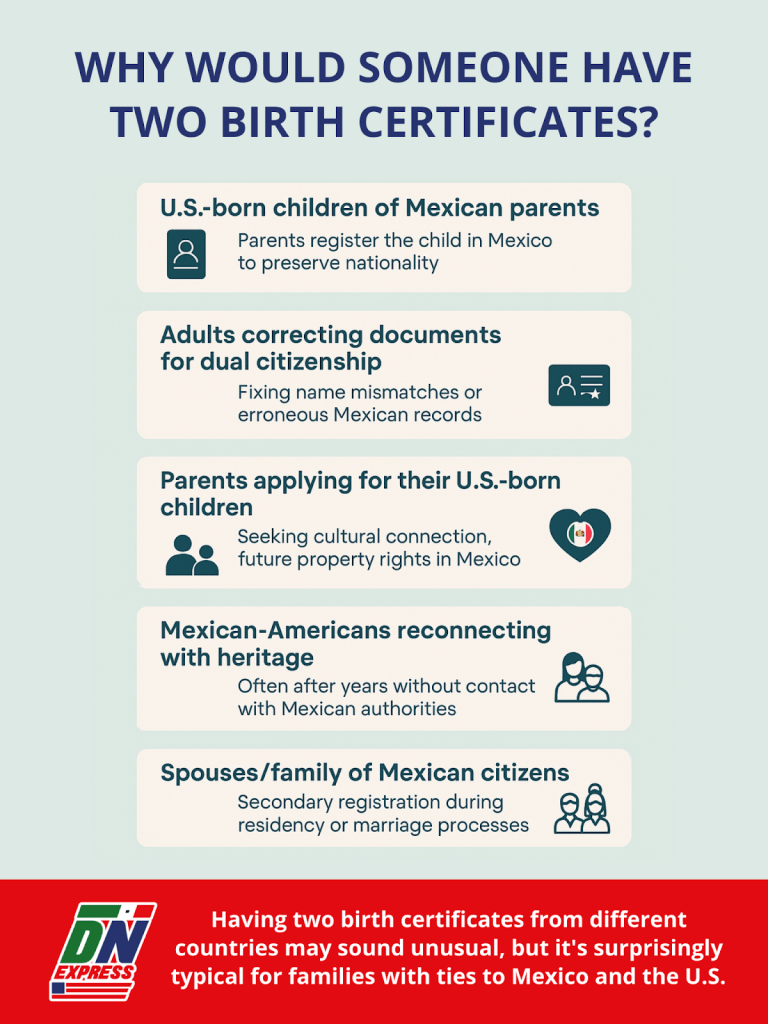
Is It Legal To Have Two Birth Certificates?
Dual Birth Registration vs. Two Legal Identities
Yes, it’s legal in many cases to have two birth certificates, one from your country of birth and another from your parents’ home country.
This often happens through consular registration, called “registro de nacimiento” in Mexico.
Parents of U.S.-born children can register their birth at a Mexican consulate, which creates a Mexican birth certificate that notes the child’s foreign birthplace.
However, this isn’t the same as having “two legal identities.” The original U.S. birth certificate remains your official record of birth. Understanding multiple citizenship laws can help clarify the distinction.
The Mexican certificate simply documents your eligibility for nationality through your parents.
The challenge arises when families go a step further, registering a child in Mexico as if they were born there. While this practice was frequent decades ago, we know this approach can create conflicting records and legal complications later in life.
For official guidance on dual citizenship, see USAGov's dual citizenship information.
What About Two Different Birthplaces?
When your U.S. birth certificate says Los Angeles and your Mexican one says Guadalajara, red flags can go up during passport or visa applications.
Government agencies and airlines increasingly use biometrics and shared databases to detect mismatches. This can lead to delays, denials, or even investigations into identity fraud.
We’ve helped many clients resolve these conflicts, legally annulling one record or correcting the place of birth to show “born abroad” without losing their rights.
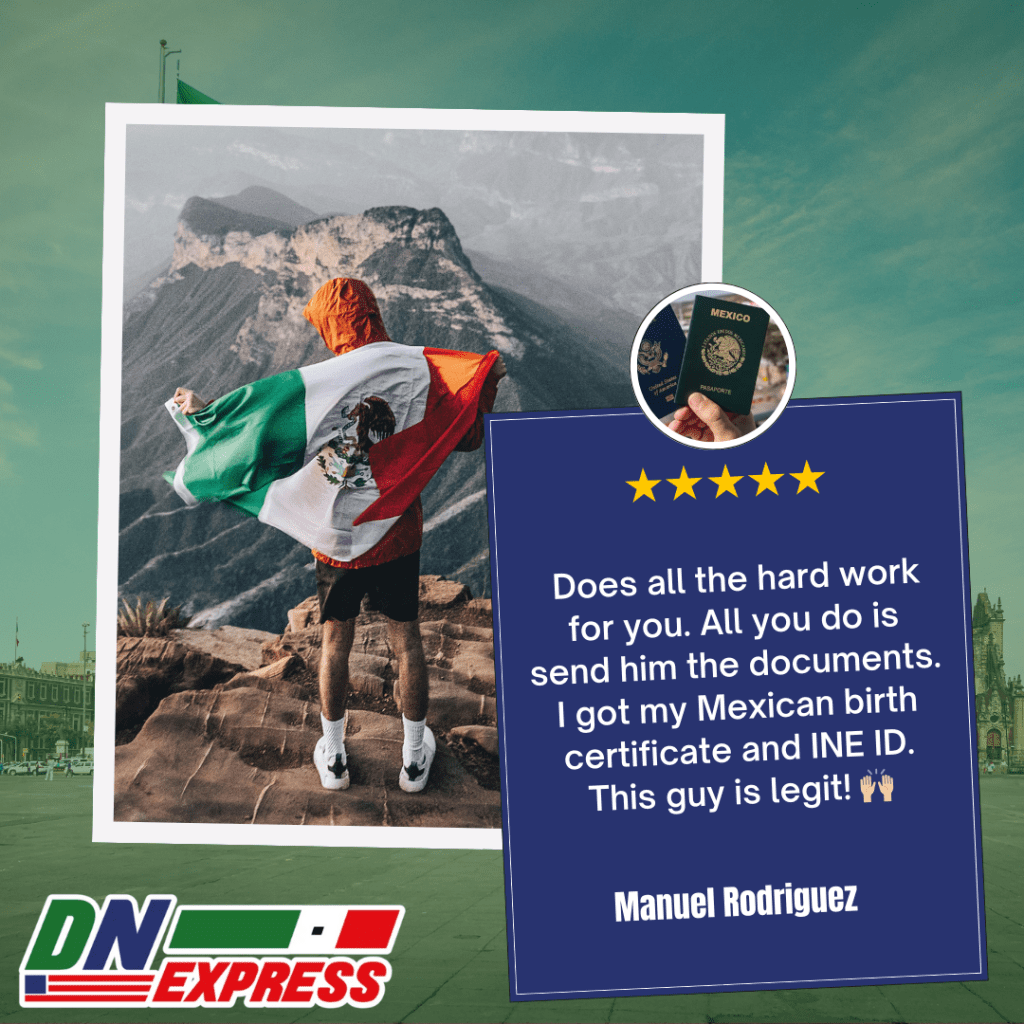
Questions People Are Asking (And Honest Answers)
- Can I Get a U.S. Birth Certificate if Born Abroad?
No. U.S. birth certificates are issued only for births that happen within U.S. territory.
If you were born abroad to U.S. citizen parents, you’re eligible for a Consular Report of Birth Abroad (CRBA) instead. This serves as your official U.S. birth record. Learn more about CRBA requirements from the State Department.
- Can You Have Two Names in Different Countries?
Not recommended. While it might seem harmless, having different names across countries can trigger issues with biometrics and international data sharing. Airlines and immigration systems increasingly flag mismatched identities, which could delay travel or lead to investigations.
- Is There a Limit to How Many Birth Certificates You Can Have?
You can order multiple certified copies of your original birth certificate for convenience.
But registering your birth multiple times in one country, or under conflicting details, can create legal problems and is not permitted.
- Do Adoption Birth Certificates Look Different in the U.S.?
Yes. In U.S. adoptions, an amended birth certificate replaces the original, listing the adoptive parents as if they were the biological parents.
The original birth certificate is sealed and only accessible under certain conditions, depending on state law.
- What If You Lose Your Birth Certificate From Another Country?
You can request a replacement certified copy from the civil registry in the country where it was issued.
In Mexico, for example, this can be done remotely with the help of professionals like DNExpress, no consulate visits needed. Review Mexico's civil document requirements from the State Department.
- Birth Certificate vs. Birth Registration, What’s the Difference?
A birth certificate is the official document proving your birth details. Birth registration is the legal act of recording the birth with government authorities.
Without registration, a certificate can’t be issued. For more information about U.S. immigration processes, visit USCIS.
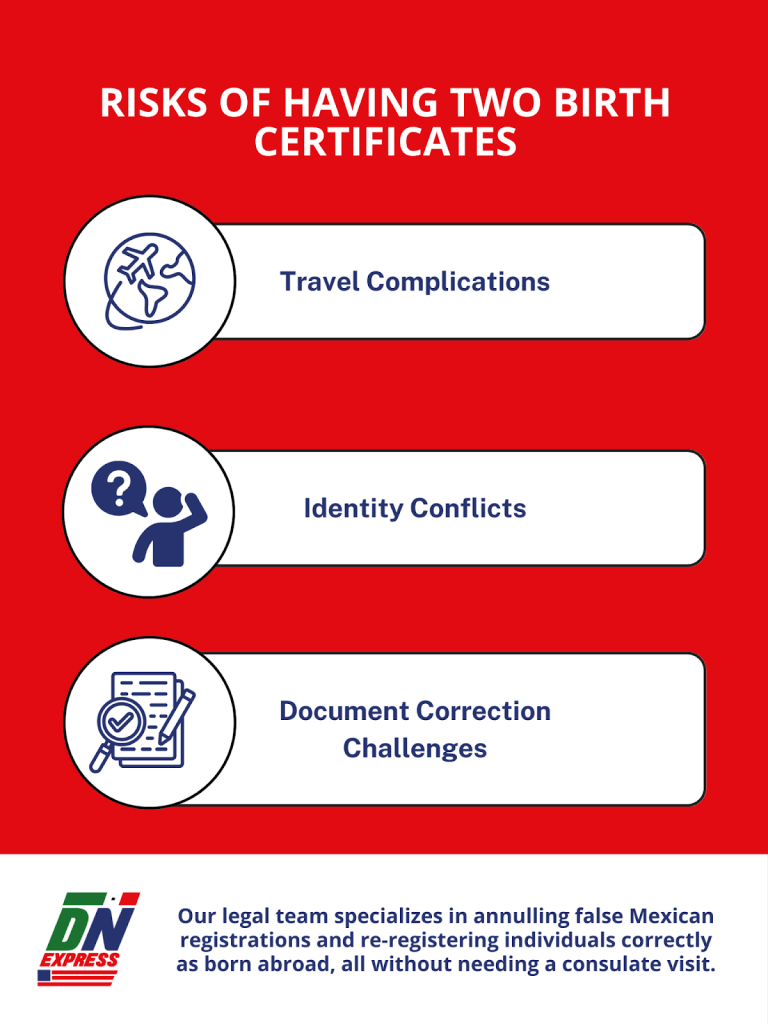
Risks of Having Two Birth Certificates
- Travel Complications
Many people wonder “Can I use different passports with different birthplaces without getting caught?”
While it might have worked decades ago, today it’s risky. For more immigration insights, visit the American Immigration Council.
Airlines and immigration agencies now share biometric data, including fingerprints and facial recognition, across international databases. If mismatched birthplaces appear on two passports, you could face delays, questioning, or even denial of entry. The State Department explains dual nationality implications for travelers.
- Identity Conflicts
If one of your birth certificates was registered with incorrect or false details, like claiming a home birth in Mexico when you were actually born in the U.S., it can raise serious legal issues.
Authorities in either country may view this as identity fraud, even if it was done by your parents when you were a baby.
This could affect future applications for passports, visas, or government benefits.
- Document Correction Challenges
We know that correcting conflicting birth records presents complex challenges.
Many clients come to DNExpress after realizing their dual registration prevents them from getting a Mexican CURP, passport, or property rights.
Our legal team specializes in annulling false Mexican registrations and re-registering individuals correctly as born abroad, all without needing a consulate visit.

How Doble Nacionalidad Express Can Help
Why Work With Us?
We know how stressful it feels to have conflicting birth records, and how impossible it seems to fix them.
That’s why our team of licensed Mexican attorneys specializes in untangling even the most complex cases.
Whether you need to annul a duplicate birth certificate, correct errors in names or birthplaces, or secure a Mexican passport and CURP, we handle everything for you.
Best of all, we do it without requiring you to visit a Mexican consulate, perfect for the U.S.-based families who want a seamless, legal solution. All backed by our service guarantees.
Downsides of Doing It Yourself
Many clients come to us after spending months, or even years, trying to fix these issues on their own.
- Navigating Mexican civil registries from abroad is notoriously slow and confusing.
- Mistakes or incomplete paperwork often lead to rejection. And with consulate wait times stretching for months or longer, it’s easy to feel stuck in limbo.
- Without professional guidance, even a small error can cause your case to stall indefinitely.
Benefits of Our Service
- Bilingual support across the U.S. and Mexico, call, text, or WhatsApp us anytime.
- Over 3,000 successful cases, including many others turned away by consulates or attorneys.
- Affordable payment plans and no hidden fees, so families can take action without financial stress. See our dual citizenship costs breakdown.
We don’t just process documents. We fight for your legal and cultural identity, ensuring you and your family get the recognition and rights you deserve on both sides of the border.
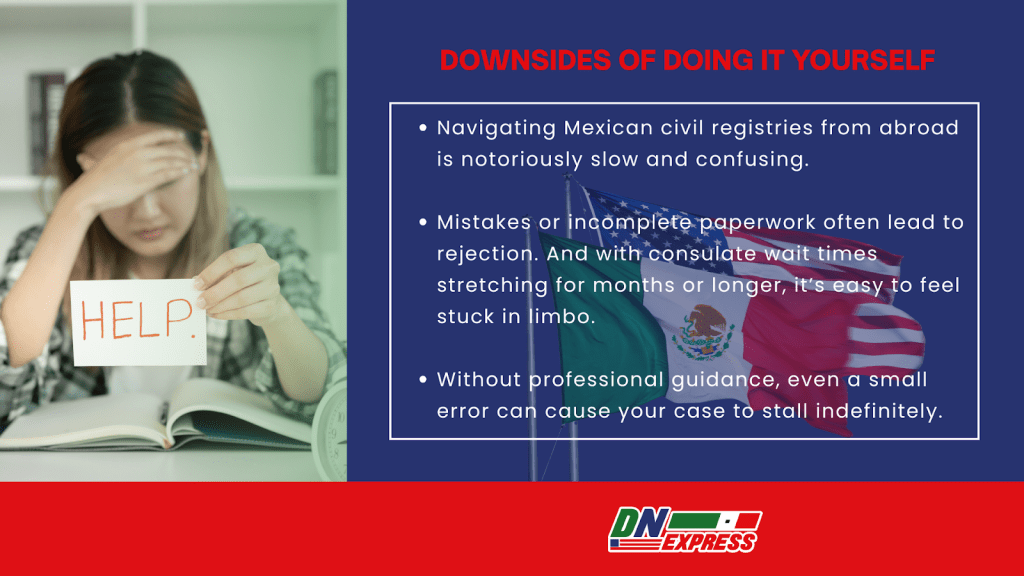
What To Do If You Have Two Birth Certificates
If you’ve discovered you have two birth certificates, one in the U.S. and another in Mexico, it’s important to act carefully. Here’s what we recommend:
1. Review Both Birth Certificates for Inconsistencies
Check details like your name, place of birth, and parents’ names. Even small mismatches can create big problems when applying for passports or legal documents.
2. Contact DNExpress for a Free Case Evaluation
Our team of licensed Mexican attorneys can quickly assess your situation and recommend the safest, fastest path forward. We’ll let you know if you need to annul one registration, correct details, or simply update your records.
3. Avoid Using Conflicting Documents Until Resolved
Using different passports or IDs with mismatched birthplaces could trigger red flags with immigration authorities or airlines. Wait until your records are corrected before relying on them for travel or legal processes.
Need help now?
Schedule your free consultation with DNExpress today.
We’ll handle the paperwork, deal with the bureaucracy, and help you reclaim your Mexican nationality, without setting foot in a consulate.
Ready to Fix Your Birth Certificate Issues?
Schedule a Free Case Review With DNExpress
We’ll help you resolve conflicting birth records, correct errors, and secure your Mexican passport or dual citizenship, fast, legally, and without the stress of consulate visits.
📱 Call or Message Us on WhatsApp Today
Your journey to dual citizenship starts with one simple step.

FAQs (And quick answers)
How many copies of a birth certificate do I need for a passport?
You’ll need one certified copy for each passport application.
It must be an official copy issued by the civil registry or vital records office, not a photocopy.
Can I get a birth certificate if born in a different state?
Yes.
You can request a certified copy from the vital records office in the state where you were born. Each state has its own process, but many now allow online or mail-in applications.
Is a certificate of live birth the same as a birth certificate?
No.
A certificate of live birth is a hospital record showing details of the birth.
A birth certificate is the legal document issued by the government that proves your identity and nationality.



